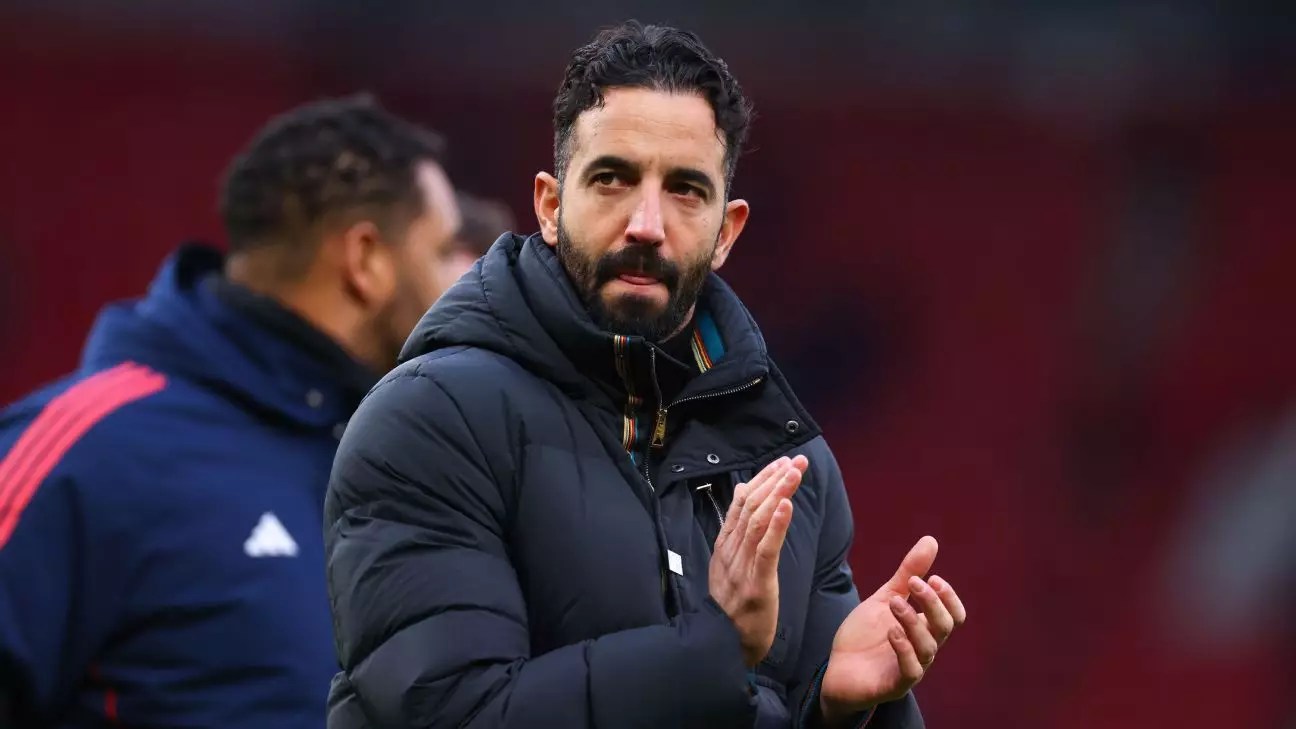In the tumultuous landscape of professional football, Manchester United stands as a historic but troubled giant. The recent comments by manager Ruben Amorim highlight a significant turning point for the club, where financial constraints and on-field performance issues collide. This intersection hasn’t merely resulted in disappointing match results; it has introduced a harsh reality for the employees of the club. As part-owner Sir Jim Ratcliffe implemented aggressive cost-cutting measures, including the reduction of 250 jobs over the summer, the impact reverberates beyond the pitch, affecting the very fabric of the club.
The stark mention of employee redundancies is a reminder of the pervasive uncertainties associated with contemporary football’s commercialization. The reality is that the well-being of club employees is intrinsically linked to the performance of the team. Following a disappointing failure to secure Champions League football last season, the club’s financial losses have culminated in an alarming tally of £300 million over three years. The question now hanging over the club is how Amorim plans to navigate these choppy waters while simultaneously acknowledging the emotional turmoil affecting staff morale.
Amorim’s candid recognition of the team’s pivotal role in this scenario is a breath of fresh air in an industry often characterized by deflection of responsibility. It is easy for a coach to distance themselves from off-field decisions, but Amorim understands that the performance of the first team directly influences economic stability. His assertion that “the biggest problem is the football team” underscores a pressing truth: for a club of Manchester United’s stature, failure on the pitch extends beyond the scoreline—it results in financial turmoil that can permeate the entire organization.
As the manager contemplates the demands of his role, the stakes are growing higher. Amorim’s admission indicates a willingness to shoulder the weight of expectation, suggesting that both he and his players must rally together to improve their standing in the Premier League. His proposal to turn things around by delivering a win against Tottenham Hotspur illustrates this urgent call to action. A victory, as he believes, could serve as a vital first step in alleviating some of the pressures on employees and fans alike.
The looming specter of increased ticket prices further complicates the situation, as the club seeks ways to plug its financial deficiencies. Raising ticket prices is a contentious decision that is certain to alienate segments of the fan base, especially when mixed with reflections on job losses. In a recent correspondence to fan groups, United expressed the need to make “difficult choices,” revealing a sensitivity to the precarious balance between addressing financial woes and maintaining a loyal supporter base.
The fans are not just customers; they are a vital part of the club’s identity. Rising costs could not only restrict attendance, but also dampen the atmosphere in what should be a united arena. Amorim must navigate this treacherous path, where every decision resonates with a multitude of stakeholders. A focus on improving team performance could be pivotal in gradually gaining back the trust of fans, thereby safeguarding long-term revenue streams.
Looking ahead, the road to recovery is lined with challenges yet also opportunities. Amorim and his coaching staff must devise strategies that marry financial prudence with competitive ambition. This may involve cultivating homegrown talent, seeking wise acquisitions, and instilling a sense of purpose among players. Everyone associated with Manchester United needs to share a collective vision of resurgence.
Moreover, the club has an opportunity to revisit its connection with fans, potentially presenting more transparency around decisions, particularly those that affect ticket pricing and employment. Surviving the current crisis will demand innovative thinking, resilience, and perhaps above all, a renewed commitment to the core values that have historically defined Manchester United.
While the challenges facing Ruben Amorim and Manchester United are formidable, the club stands at a crossroads. The weight of responsibility is heavy, but if navigated wisely, it could lead to a revitalization of both fortunes on the field and morale off it.


Leave a Reply